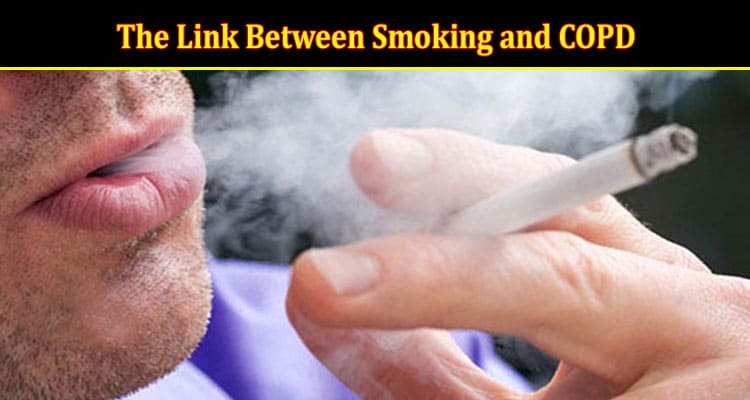Chronic obstructive pulmonary disease (COPD) is a lung condition that makes it difficult to breathe. The two most common types of COPD are chronic bronchitis and emphysema. Both of these conditions are caused by damage to the lungs and airways, making it difficult for air to move in and out of the lungs. This can lead to a number of symptoms, including shortness of breath, coughing, and wheezing.
Smoking is the leading cause of COPD. In fact, up to 90% of all cases of COPD are caused by smoking. This is because smoking damages the lungs and airways, making it difficult for air to move in and out of the lungs. Smoking also increases the risk of infections, which can further damage the lungs and airways.
When someone smokes, they inhale a number of harmful chemicals and toxins. These toxins can damage the lining of the lungs and airways, making it difficult for air to move in and out of the lungs. Over time, this damage can lead to chronic bronchitis and emphysema.
Chronic bronchitis is a condition in which the lining of the bronchial tubes becomes inflamed and thickened. This can lead to a chronic cough, which can produce a lot of mucus. Emphysema, on the other hand, is a condition in which the air sacs in the lungs become damaged. This can lead to shortness of breath and difficulty breathing.
Smoking also increases the risk of infections, such as pneumonia and bronchitis. These infections can further damage the lungs and airways, making it even more difficult to breathe. In addition, smoking increases the risk of lung cancer and other lung diseases.
The good news is that quitting smoking can slow down the progression of COPD and improve symptoms. In fact, quitting smoking is the most effective way to prevent COPD and other lung diseases. If you quit smoking, your lung function will start to improve within the first year, and it will continue to improve over time.
If you have COPD and you continue to smoke, your symptoms will continue to get worse. You will also be at a higher risk of developing other lung diseases, such as lung cancer. If you are a smoker, it is important to quit smoking as soon as possible to prevent COPD and other lung diseases.
There are a number of resources available to help you quit smoking. You can talk to your doctor about quitting smoking, and they can refer you to a smoking cessation program. Nicotine replacement therapy (NRT) is also a popular way to help people quit smoking. This type of therapy provides you with nicotine to help ease the symptoms of withdrawal,this can be purchased online through canadian pharmacy portal..
Understanding the risks and how to prevent the development of COPD through smoking cessation.
Chronic obstructive pulmonary disease (COPD) is a chronic lung disease that makes it difficult to breathe. It is a leading cause of death and disability worldwide. The main cause of COPD is smoking, and it is estimated that 80-90% of all COPD cases are caused by smoking. In this article, we will discuss the risks associated with smoking and how to prevent the development of COPD through smoking cessation.
The risks associated with smoking are well-known, and they include lung cancer, heart disease, and stroke. However, smoking also increases the risk of developing COPD. This is because smoking damages the lungs, making it harder for them to function properly. The lungs are responsible for taking in oxygen and getting rid of carbon dioxide. When the lungs are damaged, they are not able to do this as well, and this leads to shortness of breath, coughing, and other symptoms of COPD.
Smoking also increases the risk of other lung diseases, such as emphysema and bronchitis. Emphysema is a disease that causes the air sacs in the lungs to lose their elasticity. This makes it harder to breathe. Bronchitis is an inflammation of the airways that causes coughing and difficulty breathing. Both of these diseases are caused by smoking and can lead to the development of COPD.
The good news is that smoking cessation can prevent the development of COPD. When a person stops smoking, their lungs begin to heal, and their risk of developing COPD decreases. It is never too late to stop smoking, and the benefits of quitting smoking are numerous. Quitting smoking can improve lung function, reduce the risk of lung cancer and heart disease, and prolong life.
The best way to quit smoking is with the help of a healthcare professional. They can provide guidance and support to help a person quit smoking. There are also medications and nicotine replacement therapy (NRT) that can help a person quit smoking. Nicotine replacement therapy can help to reduce withdrawal symptoms, such as cravings and irritability, that a person may experience when they quit smoking.
In conclusion, smoking is the main cause of COPD, and it increases the risk of developing other lung diseases. Quitting smoking is the best way to prevent the development of COPD and improve lung function. With the help of a healthcare professional, a person can quit smoking and enjoy the many benefits of a smoke-free life. Remember, it is never too late to quit smoking and improve your health.

